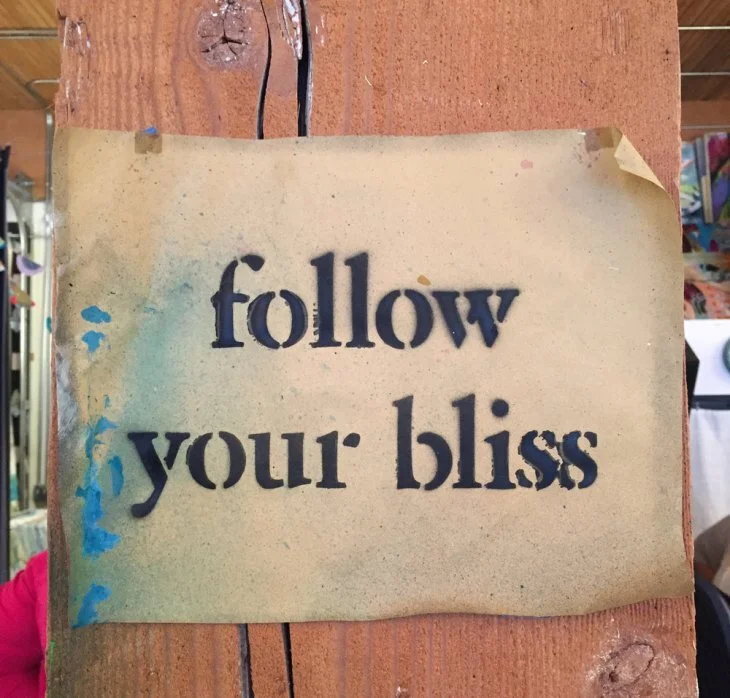It’s that time of year when people start scheming their New Year’s resolutions. How they will become thinner, fitter, and lead more frugal, productive, and organized lives starting January first.
According to statistics, about half of us make these yearly declarations. The idea of a fresh start as an idealized version of yourself, with the magical power of becoming the person you should (could!) be, at the turn of a calendar page, is seductive. Intrinsically, we all want to be better versions of our current selves.
Unfortunately, New Year’s resolutions have poor rates of sustainability and can damage your zeal to pursue healthy behavioral changes when you ultimately “fail” for any number of legitimate reasons. I’d like to offer a radically different approach: Resolve to Practice.
WHY PRACTICE?
A practice is something done often, on a regular basis, a behavior we actively pursue. It is fundamentally different from “fixing yourself” or striving for the ideal, which is what resolutions are usually about. The idea of practice has a flavor of flexibility, approachability, and room for error. It is not as punitive as a discipline or as rigid as routine. It won’t cry “fail” if a day or even a week is missed. Examples of actions that can become regular practices include yoga, reading, volunteering, budgeting, cooking, gratitude, playing the guitar, card games with friends, hiking, or climbing mountains.
“The healing is in the return, not in never having wandered.”
A practice is something we return to again and again, because it is an action that we genuinely enjoy and brings us benefits, even if it’s just making our life a tiny bit sweeter, a bit more bearable. Others notice the positive impacts, too: “Hey mom, maybe you should go for a ride. It’d cheer you up.” We are drawn to it so much that we miss it when life steps in and takes us away, which it always does from time to time. And it is in the return, again and again, that the practice strengthens. It becomes part of our identity and social life. ou know your practice is firmly established when it’s harder to not do it than it is to do it.
Contemplate a vision of where you want to go and what you want to cultivate in this one precious life of yours. What activity do you authentically want to spend your time on? Not what your room-mate, co-worker, or family member wants you to do. If the motivation for change is coming from someone else and feels like a “should,” you will most likely encounter some strong rebellion.
THE PERILS OF PERFECT AND THE PROMISE OF PRACTICE
When we set unrealistic expectations and then don’t meet those expectations perfectly, guilt and shame invariably follow. Resolve to practice, and you can leave guilt and shame in the rearview mirror and carry on with the more amiable kindness and joy. When a child is learning a new skill like riding a bike, when they crash and burn, you don’t criticize them, you encourage them to get up and try again!
“A bicycle ride around the world begins with a single pedal stroke.”
Start small; take it slow. Focus on tiny steps in the right direction, one after another. Expect mis-steps and back-steps. This is a dance, not a wrestling match. Evolution is a slow process, and it demands patience and persistence.
Willpower is unreliable in sustaining change because it is vulnerable to life’s common obstacles: lack of sleep and stress. Address the basics first. You can’t exercise efficiently if you’re not eating well; you can’t relax and savor life if your work/life balance is out of whack or stress level is too high; and you can’t do anything well if you’re not well rested.
Aim for good enough, a goal that’s especially hard for perfectionists! Set your intention for ‘most of the time’ or ‘some of the time,’ instead of ‘all of the time.’ Leave some elbow room for life.
When resolutions fail, that all-or-nothing sinking feeling comes creeping in and you simply give up.
With a practice, experimentation allows you to see what works and what doesn’t. Get curious, glean information about any barriers that arise, and play around with how to overcome them. Modify the plan to make it easier by adjusting your environment. Want to ride to work more often? Keep your lights charged, your helmet and lock near your bike, and be ready to roll whatever the weather.
What practices have you already created? What helped initiate and sustain them? Is it the sense of pleasure, relaxation, accomplishment, or social satisfaction? Take cues from your successes and focus on the benefits and how the practice can enhance or ease your life.
This year, mount your own personal revolution: Resolve to practice.
“Because in the end, you won’t remember the time you spent working in the office or mowing your lawn. Climb that goddamn mountain.”




